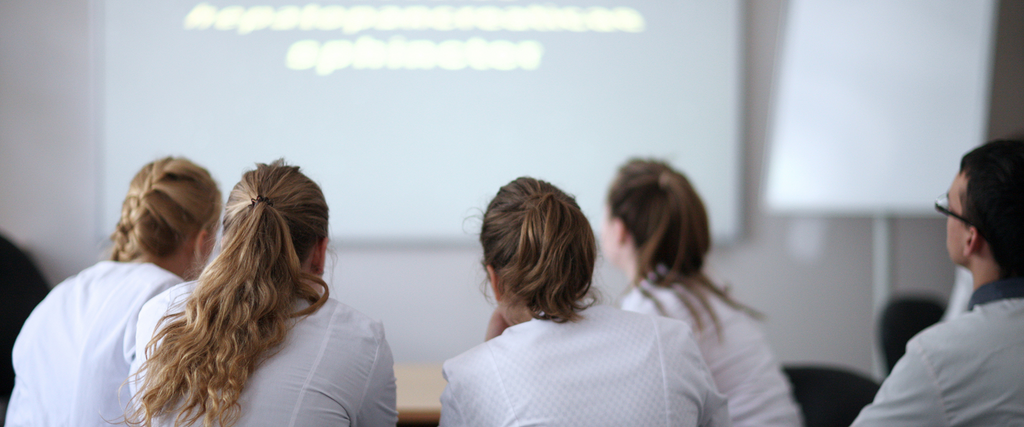What Is The GAMSAT?
Becoming a doctor might have been your childhood dream or inspired by a life-changing visit to the emergency room. For some, the title Dr confers a senseof honour, and for...
${reading_time(`Becoming a doctor might have been your childhood dream or inspired by a life-changing visit to the emergency room. For some, the title Dr confers a senseof honour, and for others, a stable job with security. No matter your motivation, admission into postgraduate Medicine in Australia, Ireland, and the UKrequires you to sit the Graduate Medical School Admission Test (GAMSAT). Such is the popularity of the GAMSAT, it is now required for entry into certainmedical programs in Israel, Poland, Singapore, and the USA.
Offered twice a year in March and September, the GAMSAT is a cognitive test developed by the Australian Council for Educational Research (ACER). Thosefamiliar with the GAMSAT know it’s a monster of an exam divided into three sections:
Section I: Reasoning in Humanities and Social SciencesSection II: Written CommunicationSection III: Reasoning in Biological and Physical Sciences
Traditionally, the GAMSAT was facilitated in a paper format; however, due to the COVID-19 pandemic, the test had been moved online. The structure andcontent of the GAMSAT exam had changed considerably during the pandemic but such was the age of uncertainty, it could be forgiven. Testing centres arenow more numerous and due to the digital nature of the exam, is accessible right across the world. Fast forward to 2023 and ACER has settled on an all-day5.25-hour exam consisting of 62 questions for Section I, 2-typed exams for Section II, and 75 questions for Section III. You can sample our free trial GAMSAThere and receive the latest updates on the exam (including much more free material!) via our dedicated GAMSAT home.
The structure and content of the 2023 GAMSAT exam.
Number ofQuestions
Total Test Time
Section IReasoning in Humanities and Social Sciences
62
100 minutes
Section IIWritten Communication
2
65 minutes
Section IIIReasoning in Biological and Physical Sciences
75
150 minutes
You might think sitting the GAMSAT is form of capital punishment, but ACER argues its purpose is to assess your ability to understand and analyse material,and to think critically about issues. Since candidates with non-science backgrounds are eligible to sit the exam, the GAMSAT purposefully tests a wide content base to minimize bias. A recent study commissioned by ACER suggests that students with non-science backgrounds perform better in Section’s I and II than students with science backgrounds. However, candidates with a physical science background tend to perform better overall on the exam.
A science degree is not always a prerequisite and universities encourage applications from people who have achieved academic excellence in other fields.Though, success in GAMSAT will be difficult without a good knowledge and ability in the biological and physical sciences. To be eligible, you need to havecompleted a Bachelor or an undergraduate honours degree or be in your penultimate (second-last) or final year of study, at the time of sitting the test.Fortunately, there is no limit to the number of times you may sit GAMSAT.
Entry into Medicine can be divided into two parts: the application process and the interview process. The process of applying for admission to postgraduateMedicine is separate from the process of registering to sit GAMSAT. There are a total of nineteen postgraduate medical school streams in Australia, twelve ofwhich requiring a GAMSAT score for entry. Ten of these medical schools utilise the Graduate Entry Medical School Admissions System (GEMSAS) to processapplications.
When you receive your GAMSAT results, they will show an Overall GAMSAT Score and a score for each of the three test sections. Generally, most medicalschools rank applicants with this overall score (you must score a minimum of 50 overall, with no individual section below 50), whereas other universities takean average of the three GAMSAT sections. All medical schools consider your weighted or unweighted Grade Point Average (w-GPA and uw-GPA, respectively)in some form, so it helps to have at least a credit-average to be competitive. And to add another layer of complexity, some schools require a portfolio,situational judgement test, and/or personal statement for consideration of an interview offer. Additionally, if you have lived in an Australian rural area, youmay be eligible for consideration in rural schemes. The Australian Government currently defines “rural origin” as residency for at least 10 years cumulativelyor any 5 years consecutively in regional/rural or very remote communities (Modified Monash Model area, MM2–7).
Some exceptions include:
The University of Queensland has introduced tertiary level science prerequisites.
Entry to Doctor of Dental Surgery and Doctor of Optometry at the University of Melbourne does not require an interview.
Entry into Doctor of Medicine and Doctor of Dental Medicine at the University of Sydney does not require an interview. Dubbo stream candidates must submit a Personal Statement for applications to be considered.
Selection into the Doctor of Podiatric Medicine at the University of Western Australia is based on academic achievement and specific prerequisites only.
The University of Notre Dame Australia (Fremantle and Sydney) rank applicants for interview by the standardised result of GPA, unweighted GAMSAT, Casper score, and bonus points, weighted 30:30:30:10.
The University of Wollongong additionally requires the submission of an Admissions Portfolio and a valid Casper score.
Macquarie University additionally requires the submission of a Personal Statement.
Not to worry, we have done the hard part for you and summarized the important information for select medical school entries below. More information canalso be found on the official ACER and GEMSAS webpages.
In Australia, your GAMSAT results are valid for four years (or two years when applying at the University of Sydney), i.e., to apply in 2023 for a coursecommencing in 2024, only the following results can be used: September 2019, May 2020, September 2020, March 2021, September 2021, March 2022,September 2022, and March 2023. If you sat the March test in 2023 you can use the results obtained to apply for a graduate entry course commencing in2027. If you sit the September test in 2023, you may use the results obtained to apply for a graduate entry course commencing in 2028.
Admission to a Graduate-Entry Program in the UK
Applications for the twelve medical schools — Exeter, Keele, Liverpool, Nottingham, Plymouth, St Andrews Dundee, St George’s, Sunderland, Surrey,Swansea, Ulster, and Worcester — must be made through UCAS.
Candidates applying for the graduate-entry programs must also fulfil the following criteria:
Have, or be predicted to receive, at least an upper second-class honours degree.
Be classed as a home student, which includes nationals from the UK and the Republic of Ireland.
To apply in 2023 for a course commencing in 2024 only, the following results can be used: March 2022, September 2022, March 2023, and September 2023.
Applicants are selected for admission into the graduate-entry programs based on undergraduate Honours degree, GAMSAT score, and Interview. Someexceptions include:
Plymouth medical and dental, and Exeter medical programs based on performance in GAMSAT and in an interview, only.
Applicants to the University of Surrey who pass preliminary shortlisting and reach the threshold level in GAMSAT are invited to 1-hour MMI interview.
Key dates for Graduate-Entry Program admission in the UK:By 15 October 2023: Submit UCAS application form.December 2023 – April 2024: Interviews for admission.March – June 2024: Offers made to successful applicants.August – September 2024: Programs begin.
Admission to a Graduate-Entry Program in Ireland
The CAO processes applications for admission to graduate-entry medicine and veterinary medicine in Ireland for the RCSI University of Medicine & HealthSciences, University College Cork, University College Dublin (Medicine and Veterinary Medicine), and University of Limerick.
To apply in 2023 for a program commencing in 2023 only, the following GAMSAT results can be used: September 2021, March 2022, September 2022, andMarch 2023.
Key dates for Graduate-Entry Program admission in Ireland:Closing date for CAO applications 2023: 1 February 5pm GMT.Closing date for late applications: 1 May at 5pm GMT.Closing date for change of mind applications: 1 July at 5pm GMT.Early August 2023: Offers made to successful applicants.
Overwhelmed yet? The friendly team at the Institute of Medical Education is here to help! In addition to providing comprehensive GAMSAT preparationpackages, we also oversee your medical school applications and guide your choices. If you are lucky enough to receive an offer for interview, our InterviewMentorship Program will give you the best chance at entry. We want to make sure you focus all your attention on GAMSAT and interview preparation, so getin contact with us today and we can lead this journey together.
GEMSAS and non-GEMSAS Australian medical school places available for postgraduate Medicine entry in 2024, including Commonwealth Supported Places(CSP), Bonded Medical Program (BMP), and Domestic & International Full-Fee. Note: Australian medical schools must offer at least 25% of CSP to studentsfrom a rural background.
Medical School
CSP
BMP
DomesticFull-Fee
InternationalFull-Fee
Comments
GEMSAS
University of Queensland
96
39
195
Approximately 270 places are available for domestic students
Provisional cohort of 135 (including rural and BMP quotas)
No set quota on Aboriginal and Torres Strait Islanders
International includes UQ-Ochsner
Up to 60 places available for rural candidates in the Central Queensland – Wide Bay region and up to 30 in the Darling Downs – Southwest region
GEMSAS
Griffith University
142
56
35
80 of the available CSP and BMP places include BMedSci Pathway (Griffith University and University of Sunshine Coast)
Eligible candidates can apply for the First Peoples Health Pathway and Griffith University Rural Priority Access Scheme
GEMSAS
University of Notre Dame (Sydney)
43
17
60
Applicants of demonstrated rural background will receive bonus points
GEMSAS
University of Notre Dame (Fremantle)
71
29
Places for international students are not available through GEMSAS
Applicants of demonstrated rural background will receive bonus points
Applicants who have resided cumulatively in Western Australia for 10+ years may receive bonus points for interview ranking
GEMSAS
University of Melbourne
178
71
106
Places are available to eligible Chancellor’s Scholars applicants and
Guaranteed Entry Full-Fee applicants
30 places are available via the MD Rural Pathway
Applicants of Aboriginal and Torres Strait Islander descent can apply for priority access via The University of Melbourne Indigenous pathway
Graduate Access Melbourne is available for applicants based on their level of disadvantage.
International students residing outside of Australia at the time of application may apply using an MCAT score
GEMSAS
Deakin University
86
35
15
Up to 5% of domestic places held for Indigenous applicants who apply through the Indigenous Entry Stream
Rural applicants: 25% of places reserved for rural applicants and 30 domestic places are reserved for the Rural Training Stream
International applicants may apply with GAMSAT or MCAT scores
GEMSAS
University of Wollongong
49
20
15
Students will be placed at either Wollongong or Shoalhaven campuses for the first 18 months of the program
A minimum 39 places available for Rural Entry pathway
4 places available through the Aboriginal and Torres Strait Islander pathway
GEMSAS
University of Western Australia
74
29
20
30% of places are available for rural applicants
Up to 10% of places are available for Indigenous students
28.5% of all domestic medical places are BMPs
GEMSAS
Macquarie University
50
20
All places in the Macquarie University Doctor of Medicine are full-fee
Aboriginal and Torres Strait Islander applicants can apply through the Indigenous pathway
International students residing outside of Australia at the time of application may apply using an MCAT score
GEMSAS
Australian National University
64
26
20
40 of the available places are reserved for students through an ANU pathway program
Aboriginal and Torres Strait Islander applicants can apply through the Indigenous entry pathway
Non-GEMSAS
University of Sydney
225
70
The intake is usually 300 students each year
24 student places in the Dubbo Stream are only available to students eligible for a CSP
Indigenous and Rural Applicants Facilitated Entry Scheme available
Non-GEMSAS
Flinders University*2023 guide shown.2024 details publishedlate May 2023
75
6
A maximum 75% of the total places available are for Flinders University graduates
At least 28% of CSP are available for applicants who come from an Australian rural background
Up to 5 places are reserved for eligible Aboriginal and Torres Strait Islander applicants
4 places are available to Humanitarian Visa holders
A 2023 entry GAMSAT score of 78 was required for Non-Flinders Graduates/Non-Rural/Non-Humanitarian Visa candidates for interview
GEMSAS and non-GEMSAS Australian medical schools that require a GAMSAT score for postgraduate entry in 2024. Note: w= weighted and uw= unweighted.
Medical School
ProgramOffered
Minimum GPARequirements
Portfolio/Personal Statement/ Casper
InterviewSelection
Comments
GEMSAS
University of Queensland
Medicine
uw-5.0/7.0
uw-GAMSAT andGPA
All 2020 results will be used in GPA calculations
GPA assessments are weighted by credit value of the subjects rather than the year in which the subjects were completed
PhD and Master’s by Research given maximum GPA of 7.0, if completed by July 2023
Must complete two prerequisite biological science courses
Sitting the GAMSAT is not compulsory for Aboriginal and Torres Strait Islander applicants
UQ awards two adjustments to the uw GAMSAT scores of Rural Background Students
Applicants are ranked for invite to interview within the pathways they apply i.e., CQ-WB RMP, DD-SW MP, or Greater Brisbane pathway
Applicants will be interviewed via Zoom in MMI format in September 2023
GEMSAS
Griffith University
Medicine
uw-5.0/7.0
Overall GAMSATand GPA
All 2020 results will be used in GPA calculations but scores can be omitted at the request of the applicant
PhDs and Master’s by Research receive automatic GPA of 7.0, if completed by July 2023
For a completed Combined Bachelor/Masters degrees, the GPA will be calculated using the final three years of the combined degree
Postgraduate Diplomas are not considered in GPA calculations
Griffith University Multiple Station Admissions Assessment interview is scheduled for Wednesday 20 September 2023 and will be held online
GEMSAS
University of Notre Dame (Sydney)
Medicine
w-5.2/7.0
uw-GAMSAT, GPA,Casper score, andbonus points
All 2020 results will be used in GPA calculations
Calculate GPA on most recently completed three years FTE of study including Graduate Certificate, Graduate Diploma, and Masters by coursework if completed by 31 July 2023
Candidates are ranked for interview by the standardised result of four components weighted 30:30:30:10 (GAMSAT, GPA, Casper score, and bonus points for rurality and Higher Degree by Research, respectively)
10-year cumulative residency in Western Australia also confers bonus points for UND Fremantle
Approximately 200 applicants will be interviewed for UNDF and 300 applicants for UNDS via online MMI format (7 stations) in September 2023
GEMSAS
University of Notre Dame (Fremantle)
Medicine
w-5.0/7.0
✓ Casper
uw-GAMSAT, GPA,Casper score, andbonus points
GEMSAS
University of Melbourne
Medicine,Dentistry,Optometry
w-5.0/7.0
uw-GAMSAT andGPA; interview forMedicine, only
All 2020 results will not be considered in GPA calculation; however, Honours will be considered
Re-ranking may be undertaken for a small number of applicants with a high level of performance in a PhD or Masters qualification (strict quotas apply)
Applicants will be interviewed via MMI format (8 stations, five minutes in duration)
Prerequisite courses must be considered for Dentistry and Optometry. Minimum 65 WAM for Optometry
GEMSAS
Deakin University
Medicine
w-5.0/7.0
Overall GAMSATand GPA
All 2020 results will be excluded from GPA calculations
Calculate GPA on most recently completed three years FTE of study (by July 2023) including Graduate Certificate, Graduate Diploma and Masters by coursework
A Higher Degree by Research will not be considered in the GPA calculation, but may meet the requirements for currency of qualification
Applicants may be eligible for interview offer bonuses: rural residency (4–8%), prior clinical experience (4%), work experience (2%), financial disadvantage (2%), and Deakin graduate (4%)
Rural Training Stream applicants are required to submit a written application
220 applicants will be interviewed via MMI format (6 stations, five minutes in duration)
GEMSAS
University of Wollongong
Medicine
w-5.5/7.0hurdle
✓ Portfolio✓ Casper
StandardisedOverall GAMSATand Portfolio
All 2020 results will be used in GPA calculations
Graduate Diploma and Masters by Coursework results included in the 3-year GPA calculation, if completed by 31 December 2023
GPA and Casper scores will be used as a qualifying hurdle for interview offers
Casper score is combined with interview and portfolio score to decide final offers
Portfolio assesses leadership, capacity to work with others, service ethic, high-level of performance, and rural residency
160 applicants will be invited to interview via online MMI format from 25 September 2023
GEMSAS
University of Western Australia
Medicine,Dentistry
uw-5.5/7.0
StandardisedOverall GAMSATand GPA
All 2020 results will be used in GPA calculations
Domestic applicants who were successful in obtaining an interview for Medicine 2023 entry averaged a GPA of 6.75 and GAMSAT of 70.19
Graduate Certificates, Graduate Diplomas and Masters by Coursework used in a 3-year GPA calculation whether complete or incomplete
Applicants with a PhD or Doctor of Dental Medicine from UWA receive automatic GPA of 7.0
Masters by Research applicants (by 31 July 2023) receive a 0.2 GPA bonus
There is no 10-year rule for entry to UWA i.e., applicants with degrees older than 10 years are considered
Structured interviews will be held in-person in Perth, from 24 September – 08 October 2023
GEMSAS
Macquarie University
Medicine
w-5.0/7.0 or65 WAM
✓ PersonalStatement
Overall GAMSAT(or MCAT), GPA,and satisfactoryPersonalStatement
All 2020 results will be used in GPA calculations
Graduate Diploma, Coursework Masters (if completed by 31 December 2023), PhD, and Master’s by Research will be used in GPA calculation
A 3% bonus (maximum 5%) will be applied to the w-GPA of Aboriginal and Torres Strait Islander, rural, and Macquarie University Bachelor of Clinical Science applicants
The Indigenous Pathway offers case-by-case application consideration for interview and offer, optional submission of GAMSAT results, and support through the interview process
Up to 20 interview places will be reserved for Macquarie University Bachelor of Clinical Science graduates / final year students
Applicants will be interviewed via face-to-face MMI format on Saturday 23 September 2023 (international applicants will be offered a modified MMI via videoconference)
GEMSAS
Australian National University
Medicine
w-5.6/7.0
StandardisedOverall GAMSATand GPA
All 2020 results will be used in GPA calculations
Graduate Diploma and Masters by Coursework results completed by 31 December 2023 included in 3-year GPA calculation
Applicants may be eligible for interview offer bonuses (only the highest applies): Honours (2%), Master’s (2%), and PhD (4%)
Non-GEMSAS
University of Sydney
Medicine,Dentistry
w-5.0/7.0hurdle
✓ Dubbo MedicineStream PersonalStatement
No Interview
Applicants must have GAMSAT test results obtained in the past two years
Indigenous and rural applicants: minimum w- GPA of 4.5 required to apply
The scores for each section of the GAMSAT will be used to rank applicants for offer, only
For equally ranked applicants, an Interview or Situational Judgement Test may be required
Non-GEMSAS
Flinders University*2023 guide shown.2024 details publishedlate May 2023
Medicine
w-5.5/7.0advised hurdle
Overall GAMSATscore
GPA is calculated from a Bachelor degree, only Offers determined by GAMSAT, w-GPA, and a passing interview score
A maximum 75% of the total places available are for Flinders University graduates; the 2022 intake included 64% Flinders University graduates
GEMSAS and non-GEMSAS Australian medical school evaluation of domestic offers for postgraduate Medicine entry in 2024.
GEMSAS
Medical School
GPA %
GAMSAT%
Portfolio/PersonalStatement/Casper %
Interview %
GEMSAS
University of Queensland ¥
25
25
50
GEMSAS
Griffith University
25
25
50
GEMSAS
University of Notre Dame (Sydney)
50*
50*
50*
50
GEMSAS
University of Notre Dame (Fremantle)
50*
50*
50*
50
GEMSAS
University of Melbourne
25
25
50
GEMSAS
Deakin University
25
25
25 (rural written application) ₮
50
GEMSAS
University of Wollongong
50 §
GEMSAS
University of Western Australia
30 (22.5) ‡
20 (15) ‡
50 (37.5) ‡
GEMSAS
Macquarie University
50
50
GEMSAS
Australian National University
25
25
50
Non-GEMSAS
University of Sydney
100†
Non-GEMSAS
Flinders University
33
33
33
¥ Eligible CQ-WB RMP or DD-SW MP applicants are ranked in merit order within each tier, with offers made to eligible applicants from Tier 1 first*Applicants are ranked for interview by combining the scores calculated from the GPA, uw-GAMSAT, Casper and bonus points₮ Rural Training Stream tiers include a combination of GPA, GAMSAT, and written application scores. Note: Tier 1 does not consider a GAMSAT score for offers‡ Rural entry requirements, including a 25% rural rating§ Casper score is included and weighted equally to the Interview score. Note: Aboriginal and Torres Strait Islander applicants are not required to sit Casper†Should it arise that applicants are ranked equally, further selection tools such as an Interview or Situational Judgement Test may be used
`)} 


 AU
AU 
 AF
AF AX
AX AL
AL DZ
DZ AD
AD AO
AO AI
AI AG
AG AR
AR AM
AM AW
AW AT
AT AZ
AZ BS
BS BH
BH BD
BD BB
BB BY
BY BE
BE BZ
BZ BJ
BJ BM
BM BT
BT BO
BO BA
BA BW
BW BR
BR IO
IO VG
VG BN
BN BG
BG BF
BF BI
BI KH
KH CM
CM CA
CA CV
CV BQ
BQ KY
KY CF
CF TD
TD CL
CL CN
CN CX
CX CC
CC CO
CO KM
KM CG
CG CD
CD CK
CK CR
CR CI
CI HR
HR CW
CW CY
CY CZ
CZ DK
DK DJ
DJ DM
DM DO
DO EC
EC EG
EG SV
SV GQ
GQ ER
ER EE
EE SZ
SZ ET
ET FK
FK FO
FO FJ
FJ FI
FI FR
FR GF
GF PF
PF TF
TF GA
GA GM
GM GE
GE DE
DE GH
GH GI
GI GR
GR GL
GL GD
GD GP
GP GT
GT GG
GG GN
GN GW
GW GY
GY HT
HT HN
HN HK
HK HU
HU IS
IS IN
IN ID
ID IQ
IQ IE
IE IM
IM IL
IL IT
IT JM
JM JP
JP JE
JE JO
JO KZ
KZ KE
KE KI
KI XK
XK KW
KW KG
KG LA
LA LV
LV LB
LB LS
LS LR
LR LY
LY LI
LI LT
LT LU
LU MO
MO MG
MG MW
MW MY
MY MV
MV ML
ML MT
MT MQ
MQ MR
MR MU
MU YT
YT MX
MX MD
MD MC
MC MN
MN ME
ME MS
MS MA
MA MZ
MZ MM
MM NA
NA NR
NR NP
NP NL
NL NC
NC NZ
NZ NI
NI NE
NE NG
NG NU
NU NF
NF MK
MK NO
NO OM
OM PK
PK PS
PS PA
PA PG
PG PY
PY PE
PE PH
PH PN
PN PL
PL PT
PT QA
QA RE
RE RO
RO RU
RU RW
RW WS
WS SM
SM ST
ST SA
SA SN
SN RS
RS SC
SC SL
SL SG
SG SX
SX SK
SK SI
SI SB
SB SO
SO ZA
ZA GS
GS KR
KR SS
SS ES
ES LK
LK BL
BL SH
SH KN
KN LC
LC MF
MF PM
PM VC
VC SD
SD SR
SR SJ
SJ SE
SE CH
CH TW
TW TJ
TJ TZ
TZ TH
TH TL
TL TG
TG TK
TK TO
TO TT
TT TN
TN TR
TR TM
TM TC
TC TV
TV UM
UM UG
UG UA
UA AE
AE GB
GB US
US UY
UY UZ
UZ VU
VU VA
VA VE
VE VN
VN WF
WF EH
EH YE
YE ZM
ZM ZW
ZW












